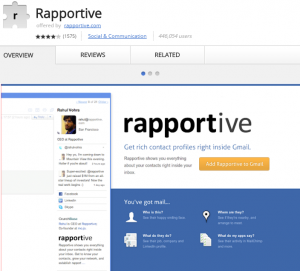By Whitney Pastorek
After decades spent following my heart instead of my bank account into a series of delightfully creative careers, I got laid off in the first month of the pandemic. It sucked. But I pulled up my freelancer bootstraps, and since 2020 I’ve served as a congressional staffer, written marketing copy for one of the biggest streaming services on the planet, and facilitated hunger relief programs for a global NGO. That’s not a trifecta that an unintelligent person could pull off.
And yet! As I wander the wilderness of LinkedIn, attempting to find a long-term gig offering health insurance better than the “If you get hit by a bus we might not let you die” plan I can currently afford, I feel unintelligent! I’ve been told that what I do best is currently known as “content creation” (ugh), but every promising job description is quickly drowned out by HR doublespeak, and I’m starting to question what I’d assumed was my possibly above-average fluency with the English language.
So, please, employers, let’s talk about the soul-killing jargon you’re using when trying to recruit creative-minded people.
First, what’s the deal with “stakeholders”? Why is “stakeholders” your preferred noun in virtually every scenario? Who is that? Is that my future colleagues? Your customers? Am I a stakeholder? Are you in fact giving me a stake beyond my salary? Find a more specific word.
Another term you love to toss around is “cross-functional.” I do not know what that means. Is it people from different departments, like, working together on stuff? Back in my days as a writer at Entertainment Weekly, when someone from the art department came down the hall to talk about Buffy, were we “cross-functioning”? Also I genuinely do not think “cross-functional stakeholder alignment” is a thing, but I’m willing to be proven wrong.
Speaking of alignment, please consider saying literally anything else in place of these buzzwords: aligning, leveraging, optimizing, iterating. You all listened to the same Tim Ferris podcast or whatever, I get it. But there are better ways to set expectations that don’t make me feel like I’m being sucked into a multi-level marketing scheme. Most of those are just fancy ways to say “Do a good job.” That’s implied, is it not?
Another one that feels kind of unnecessary: “Executes on timelines to meet project commitments.” Feel free to go with “Meet deadlines,” if that’s the goal. By the way, are y’all hiring a lot of folks who don’t inherently meet deadlines or do a good job? What cross-functional matrices are you even using?
Did I use “cross-functional” right?
Finally, let’s talk about the seemingly-required intersection of “content creation” (again, ugh) and social media management. Sure, writers need to communicate effectively via each of the disparate platforms on which your stakeholders (I did it!) spend their time. But you’re probably alienating your dream job candidates, people who could easily establish a unique voice to tell the story of your brand in an authentic and compelling way, by expecting “content creators” to be as adept on the backend as they are on the front.
Anything about “metrics” will lose me. You are hiring me to write, not do math. Find somebody who likes math to do math; I guarantee we’ll all be happier. I am willing to help with “analytics,” but they’ll be based on substance, not statistics, i.e., “Your competition might be getting better engagement because you’re selling broccoli and they’re passing out cake pops.” Another place where I’ll be useless is SEO. That’s science, folks—a totally different section of the brain. I can write you the freshest bucket of sparkling copy any horse has ever seen, but if you want the horse to read it, you gotta ask someone who works with horses.
TL;DR: Your job descriptions make me want to throw my laptop into a river. So zip up those human suits, save the corporate lingo for onboarding, and try using normal words wherever possible! You’ll attract better creatives, and we’ll need less therapy. It’s a cross-functional win-win . . . I think.
(7)
Report Post





